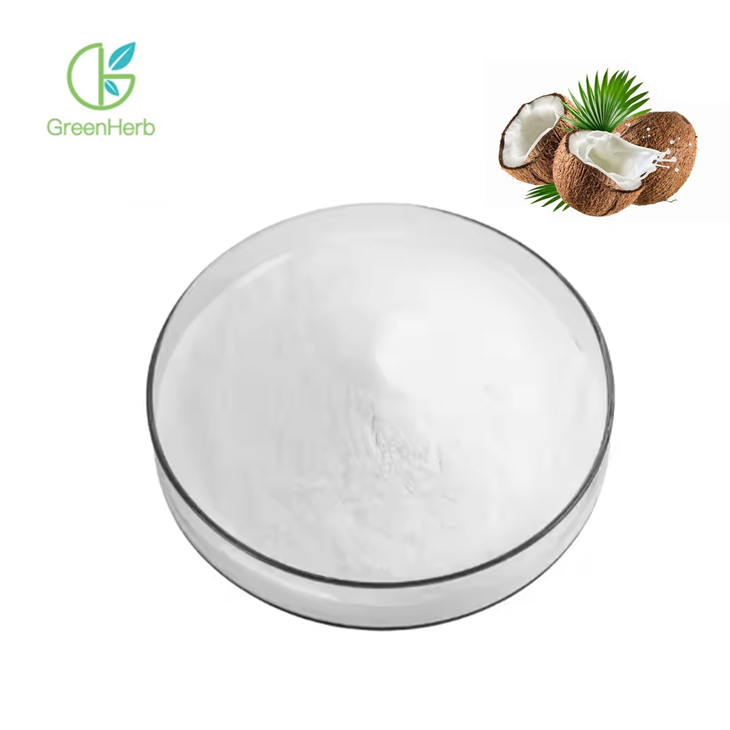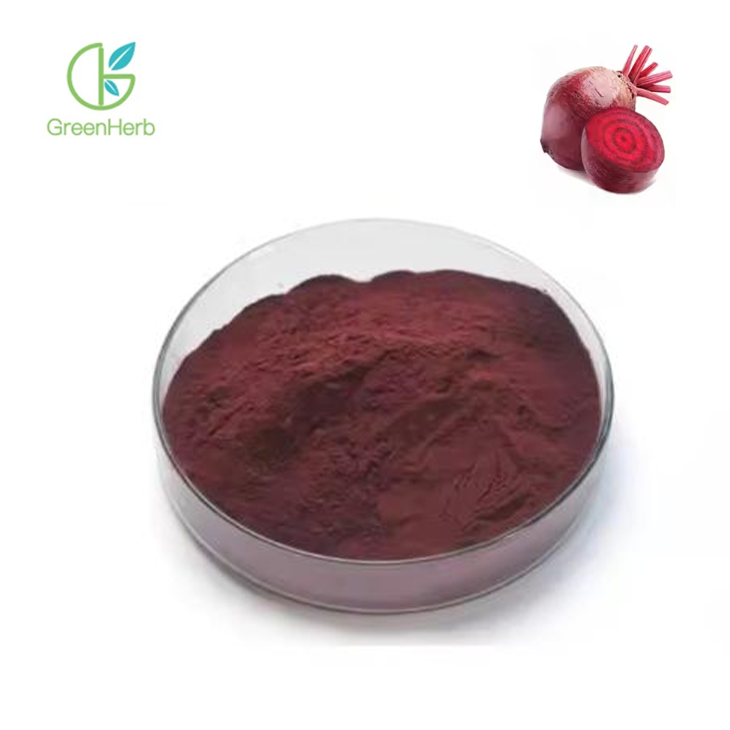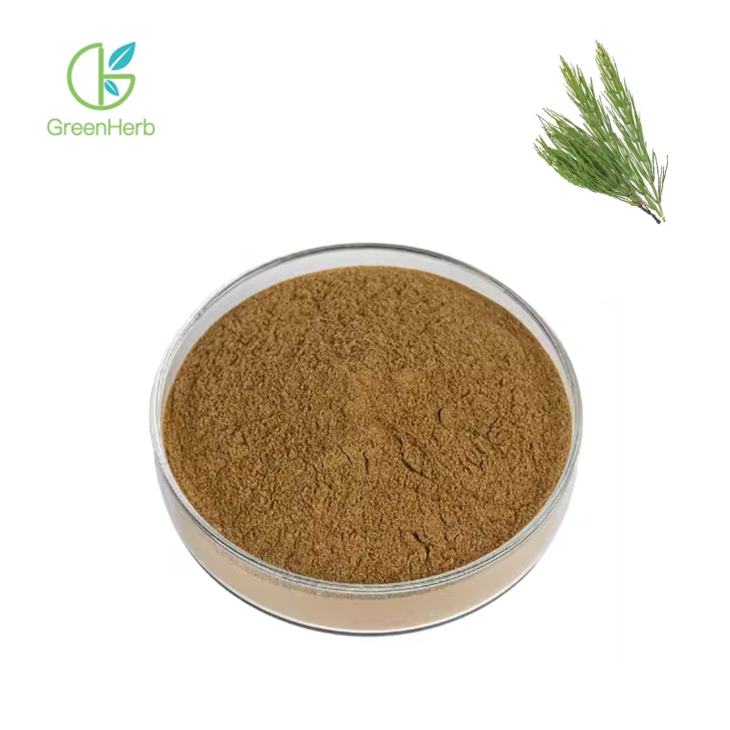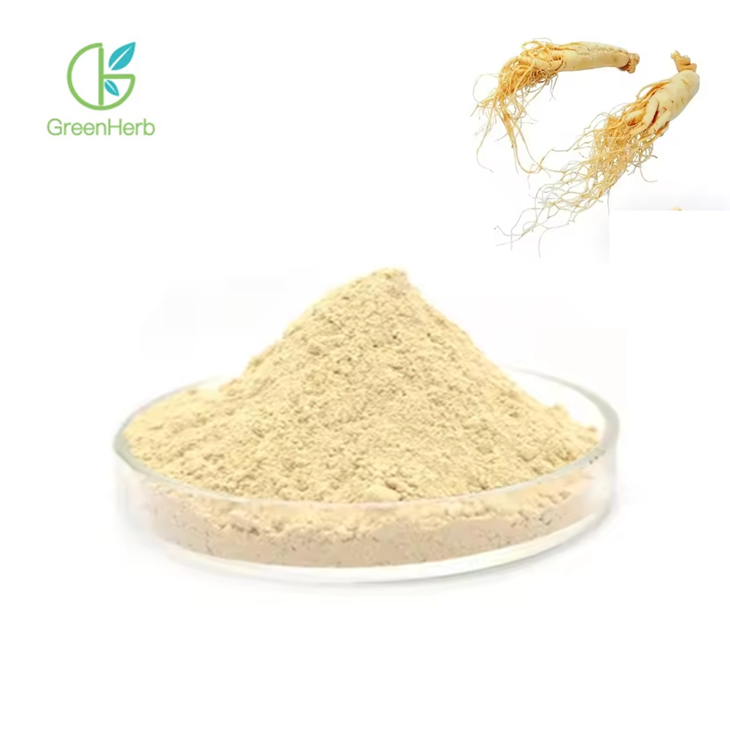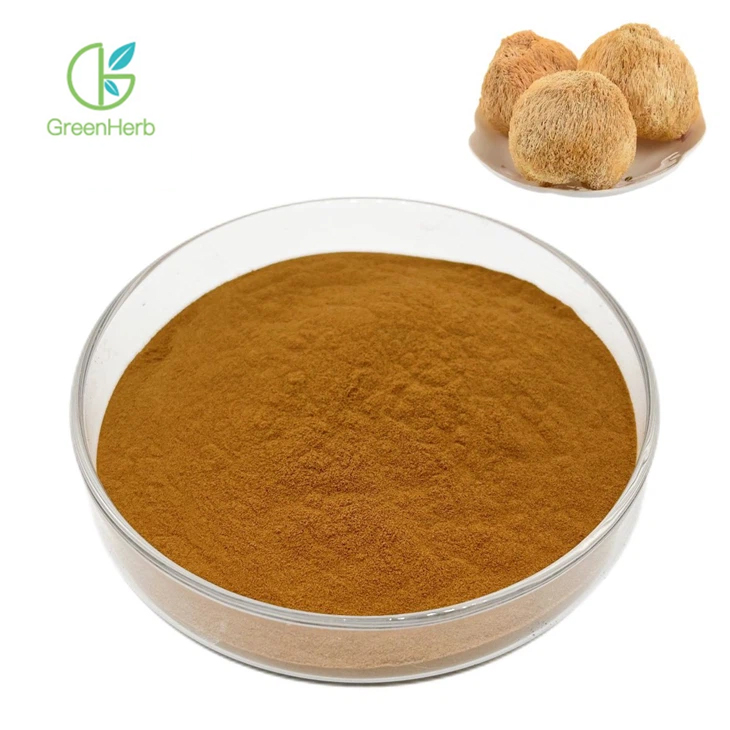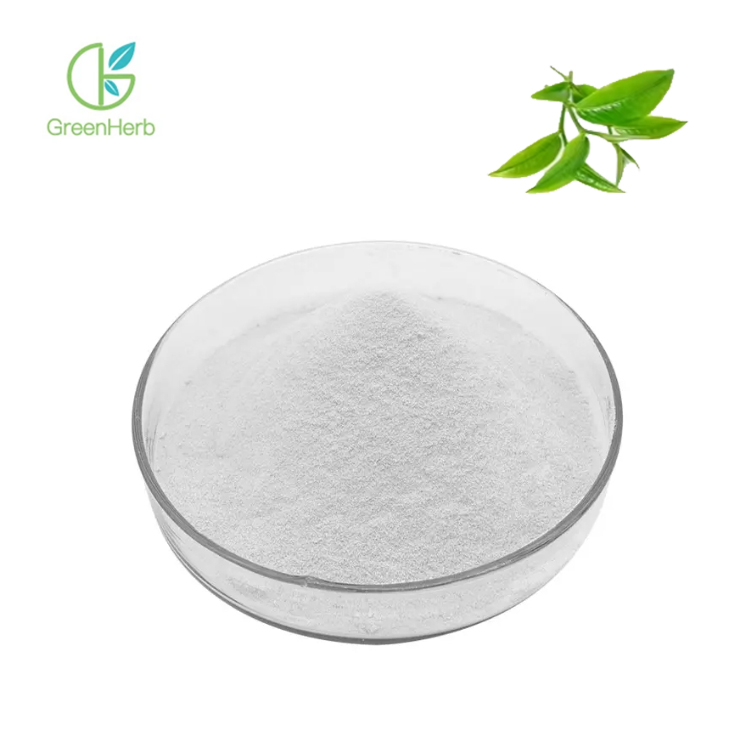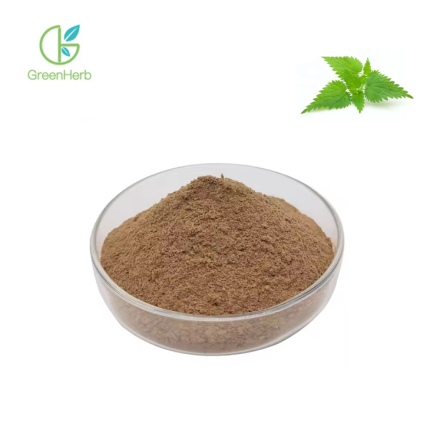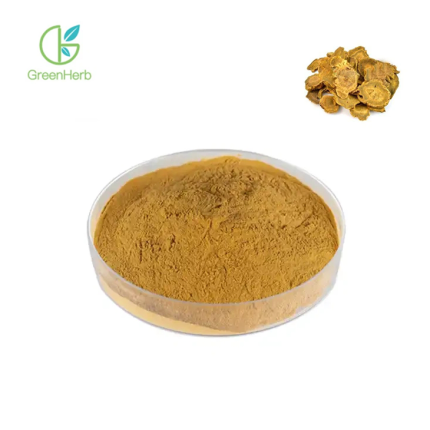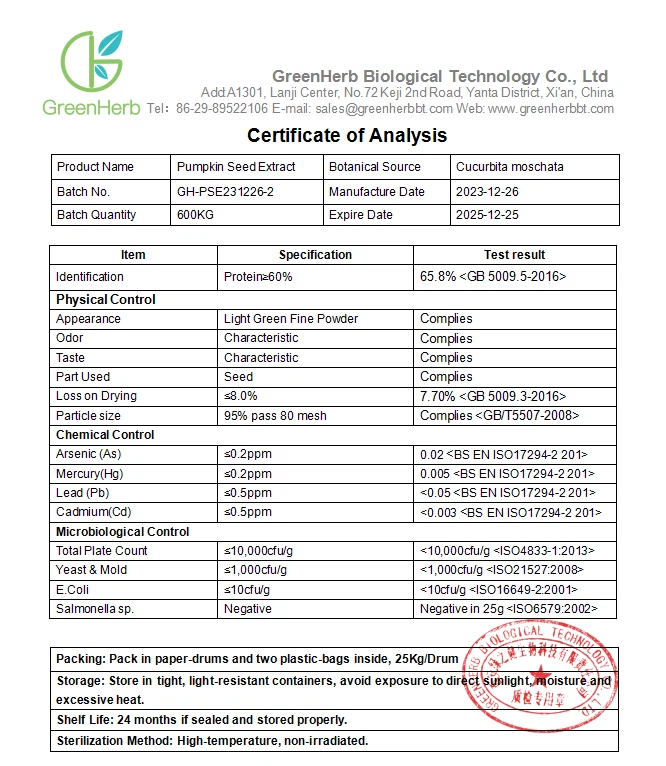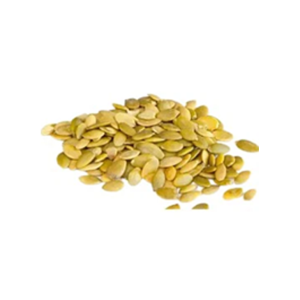1. Improve Cardiovascular Health
High plasma cholesterol levels are a major contributor to heart disease, and pumpkin seed protein offers a heart-healthy alternative. It is cholesterol-free and can replace animal-based proteins. Rich in arginine, pumpkin seed protein promotes the synthesis of nitric oxide, which helps dilate blood vessels, reduce blood pressure, improve circulation to the heart and brain, and enhance the elasticity of blood vessel walls, thus effectively preventing cardiovascular diseases.

2. Boost Immunity
Pumpkin seed protein is effective in enhancing immune function by promoting the synthesis of immunoglobulins and increasing T lymphocyte proliferation, which boosts cellular immunity. It also regulates hormone release, including insulin, growth hormone, and catecholamines, further strengthening the body's immune response.

3. Enhance Masculine Health
Pumpkin seed protein supports sperm motility and quality by supplying essential nutrients like arginine, which is crucial for sperm formation and energy. Arginine also promotes nitric oxide production, which dilates blood vessels, similar to the action of the drug "Viagra" developed by Pfizer to improve male vitality.
4. Support Muscle Synthesis
Rich in glutamate, pumpkin seed protein plays a key role in muscle growth. Glutamine, the first synthesized form of glutamate, increases muscle cell volume, stimulates protein synthesis, and enhances muscle vitality. Unlike whey protein (derived from animals), pumpkin seed protein is plant-based and allergen-free, making it suitable for vegetarians and those with dairy allergies.

5. Antioxidant Benefits
Hydrolyzed pumpkin seed protein demonstrates significant antioxidant activity, with a DPPH clearance rate of 83.47%, helping combat oxidative stress and promote overall health.
6. Aid in Diabetes Management
Pumpkin seed protein and polysaccharides can help regulate blood glucose levels. In diabetic rats, the protein components with molecular weights between 3–60 kDa showed the best hypoglycemic effects, significantly reducing fasting blood glucose and improving glucose tolerance at various stages, making it a promising option for diabetes management.

 Protein Powder22 个产品
Protein Powder22 个产品  Freeze Dried Powder00 个产品
Freeze Dried Powder00 个产品  Fruit & Vegetable Juice Powder55 个产品
Fruit & Vegetable Juice Powder55 个产品  Amino Acid00 个产品
Amino Acid00 个产品  Ratio Extract Powder33 个产品
Ratio Extract Powder33 个产品  Red Clover Extract00 个产品
Red Clover Extract00 个产品  Standard Herb Extract1616 个产品
Standard Herb Extract1616 个产品  Natural Colourings00 个产品
Natural Colourings00 个产品  Active Ingredients Monomer11 个产品
Active Ingredients Monomer11 个产品 







